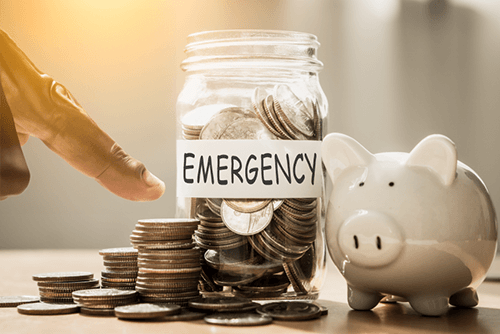How Much Cash Reserves Does Your Business Need?
 One financial decision that a lot of entrepreneurs seem to struggle with is how much cash their business should keep in reserves.
One financial decision that a lot of entrepreneurs seem to struggle with is how much cash their business should keep in reserves.
Hold too little cash and you could find yourself in serious trouble if your business takes a turn for the worse. Hold too much and you won't be investing in your company’s growth to your full capacity.
When it comes to personal finances, a generally accepted rule is that we should all have enough cash on hand to cover six months of expenses in case of emergency. While I’ve heard this same advice given to small business owners, in reality there is no one-size-fits-all approach that applies to everyone’s business.
Instead, the answer requires an assessment of where your company is in its lifecycle, as well as a look at some quantitative factors and a bit of worst-case scenario planning.
If you’ve got an early-stage company without much revenue, then it probably isn’t practical or sensible to stash away enough cash to cover six months or more of operating expenses. But it’s definitely smart to start planning for the future and adopting a prudent approach to cash management.
Strategies for Determining Cash Reserves
That’s why startups should consider setting aside a small portion of their revenues, five to ten percent, in a reserve account and then re-assessing their needs as the company grows.
Once you’re past the start-up stage and have a consistent revenue stream, there are a few steps you should take to help determine the right size for your cash reserves:
- Start by grabbing your most recent balance sheet and income statement.
- On the balance sheet, subtract your current liabilities from your current assets to determine your working capital, which represents your firm’s short-term liquidity.
- Take a look at your total operating expenses for the past 12 months on the income statement, and divide that figure by 365 to calculate your daily operating expense—the amount it costs to run your business each day.
- Next, divide your working capital by your daily operating expense and you can see how many days of funds you have on hand to cover operations.
While there is no magic number that you’re looking for, you should have enough to cover at least a few months, and if your business is seasonal or depends on big orders that can be few and far between, you’re definitely going to want a larger reserve.
In addition to performing the preceding quantitative exercise, it’s also prudent to ask what-if questions that can help you prepare for a reversal of fortune. Questions like, "What if I lose my best customer or my top-producing salesperson?" In order to come up with actionable results, try to assign a dollar value to each scenario as well as the probability that it will occur.
For example, if losing your top producer would cost you $100,000 and there is a 10% chance that he will leave this year based on your company's turnover history, then you should set aside $10,000 in cash to cover this possibility.
Hopefully by doing a bit of financial analysis and some sensible planning for the future, you’ll come up with a cash reserve that's big enough to see you through the tough times—but not too big to keep you from investing in your growth.
*Disclaimer*: Harvard Business Services, Inc. is neither a law firm nor an accounting firm and, even in cases where the author is an attorney, or a tax professional, nothing in this article constitutes legal or tax advice. This article provides general commentary on, and analysis of, the subject addressed. We strongly advise that you consult an attorney or tax professional to receive legal or tax guidance tailored to your specific circumstances. Any action taken or not taken based on this article is at your own risk. If an article cites or provides a link to third-party sources or websites, Harvard Business Services, Inc. is not responsible for and makes no representations regarding such source’s content or accuracy. Opinions expressed in this article do not necessarily reflect those of Harvard Business Services, Inc.
There is 1 comment left for Cash Reserves: How Much Does Your Business Need?
Michael Fallquist said: Wednesday, May 11, 2022As you mentioned here, cash reserves will vary, so there's no "magic" number that can be attributed to each case. However, knowing how much one needs will go a long way with financial stability.
HBS Staff replied: Wednesday, May 11, 2022Michael, Thank you for reading our blog and glad you found this article to be helpful.
